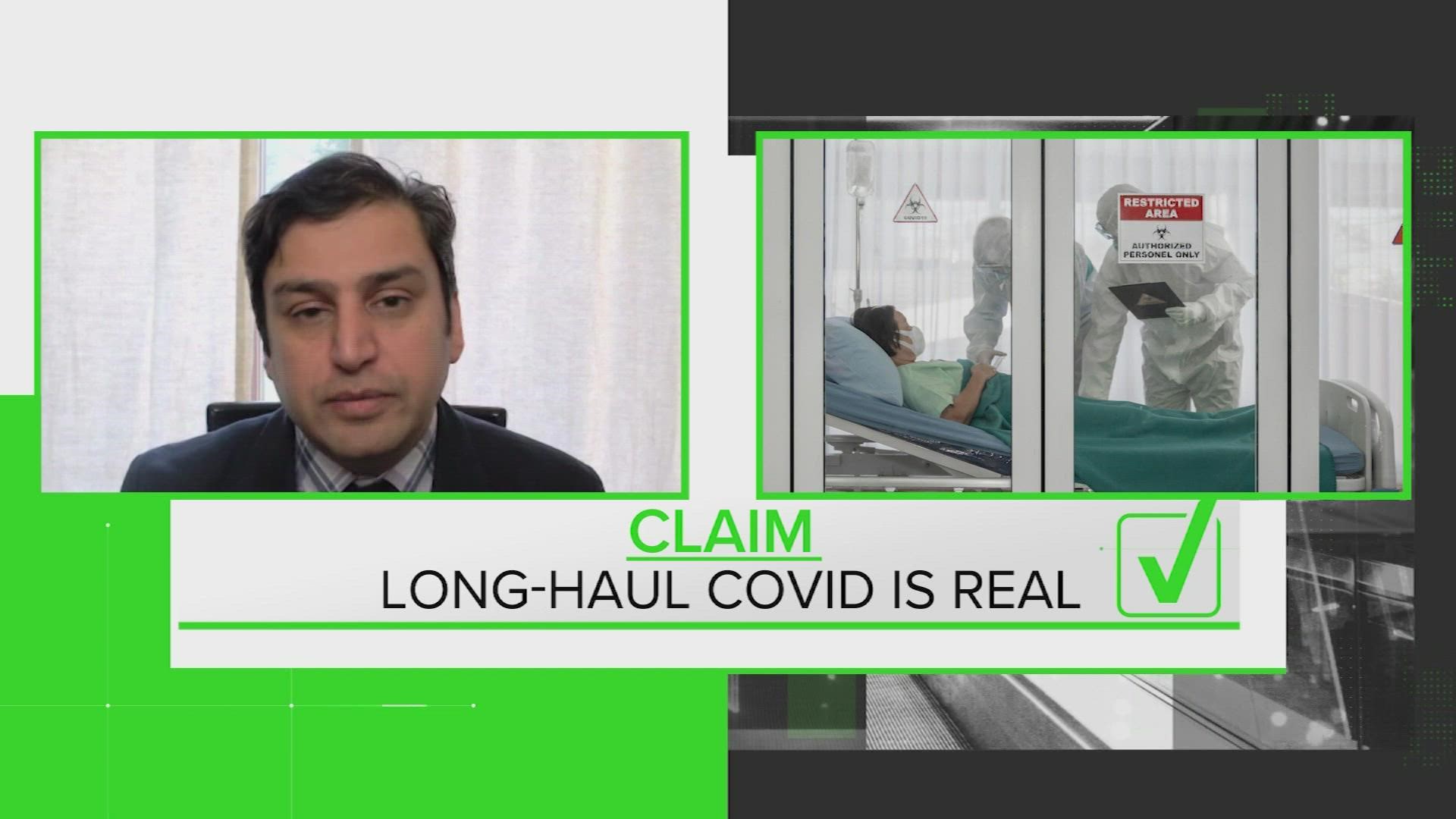HOUSTON — The VERIFY team is helping you get the facts about the COVID-19 pandemic. We took your concerns about the virus and vaccine to Johns Hopkins Senior Scholar Dr. Amesh Adalja.
Claim: Omicron symptoms only last five days.
False: Adalja said, “We do know though, that omicron symptoms tend to be less severe and tend to be shorter, but there's no specific duration. We do know that some people can have longer symptoms with omicron and some people can have shorter.”
Claim: If you have symptoms after the recommended five-day isolation period, you should remain in quarantine until you get a negative test result.
Unknown: Adalja said, “According to the CDC criteria, this is something where if you have improving symptoms at day five, you can release yourself from isolation and wear a mask for the remaining five days. Other individuals would recommend that you get a test at that point to see are you still contagious before you actually end your isolation period. This is something that's probably going to be revised. So, right now, it's sort of an area where there is considerable debate over what the best practice may be.”
Claim: You should wait 90 days after you've had COVID and tested negative for the virus to get a booster shot.
False: Adalja said, “If you need to get a vaccination, if you need to get a booster shot, the duration of time is just to ensure that you don't infect anybody else at the vaccination center. So, after your isolation period has ended, you can get a booster.”
Claim: If a person is fully vaccinated and got a booster shot, they can still get a breakthrough COVID case referred to as “long-haul COVID.”
True: Dr. Adalja said, “Long COVID can occur in people that are fully vaccinated. Although it is extremely rare for that to occur, it's more likely to occur in unvaccinated individuals. But long COVID is something where there are a lot more questions than answers and we don't quite understand what it is that causes it. What the risk factors are. But it is something that occurs rarely in fully vaccinated individuals. So, the risk is not zero, but it is considerably lower than getting COVID when you're not vaccinated.”

